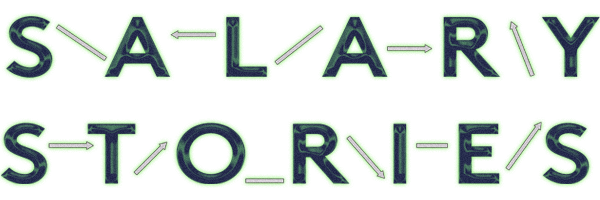
I Took A $27,000 Pay Cut To Advance My Career — & I Have Zero Regrets
ADVERTISEMENT
In our series Salary Stories, women with long-term career experience open up about the most intimate details of their jobs: compensation. It’s an honest look at how real people navigate the complicated world of negotiating, raises, promotions, and job loss, with the hope it will give young women more insight into how to advocate for themselves — and maybe take a few risks along the way.
Been in the workforce for at least eight years and interested in contributing your salary story? Submit your information here.
Previously, we talked to a senior product specialist in New York City, a marketing manager in Jersey City, and an art director in New York.
Age: 30
Current Location: Los Angeles, CA
Current Industry & Title: Tech, Head of Content
Starting Salary: $35,000
Current Salary: $80,000 + $12,000-$15,000 in freelance income
Number Of Years Employed: 9
Biggest Salary Jump: $20,000 in 2013
Biggest Salary Drop: $27,000 in 2015
Current Location: Los Angeles, CA
Current Industry & Title: Tech, Head of Content
Starting Salary: $35,000
Current Salary: $80,000 + $12,000-$15,000 in freelance income
Number Of Years Employed: 9
Biggest Salary Jump: $20,000 in 2013
Biggest Salary Drop: $27,000 in 2015
Biggest Salary Negotiation Regret: "Not doing more research on industry standards early on. I was underpaid in several jobs, including at a company that allegedly values fair pay. I switched industries several times, and each of them have different salary ranges.
"I didn’t really do enough research to see what different salaries in different industries should look like (for instance, the salary I am making now at a startup is lower than a digital agency but much higher than if I went back into editorial) and wasn’t aware of those nuances. It wasn’t until I started looking at the numbers that I realized I had been underpaid for years, and it was something I could have solved earlier on with tools like Glassdoor.
"Businesses need to save money, and so they will when they can. I'm glad I've learned now that I'm not just my best advocate — it's possible I'm my only advocate."
Best Salary-Related Advice: "When negotiating, you have to calculate the value of your benefits and the company culture as well as salary. The biggest number isn't always the right answer. For instance, I don't regret taking a huge salary drop at one point because I did it for long-term career goals (and, thankfully, it worked).
"So: Don't be afraid to take a big risk if the timing's right. I was single, I don't own a house, and I was deeply unhappy in my chosen industry. Making less money to build up my skills made the most sense at that time, and even now, the benefits of my job outweigh the fact that I earn a lower salary than I did five years ago.
“I have zero regrets. You need to know when you’ve hit the end of your growth and think about what your priorities are. For instance, I knew work-from-home days and company culture were important to me. Working somewhere where everyone is thrilled to be there every day is very valuable, especially after working at a place where everyone hates their job.”
ADVERTISEMENT
ADVERTISEMENT






